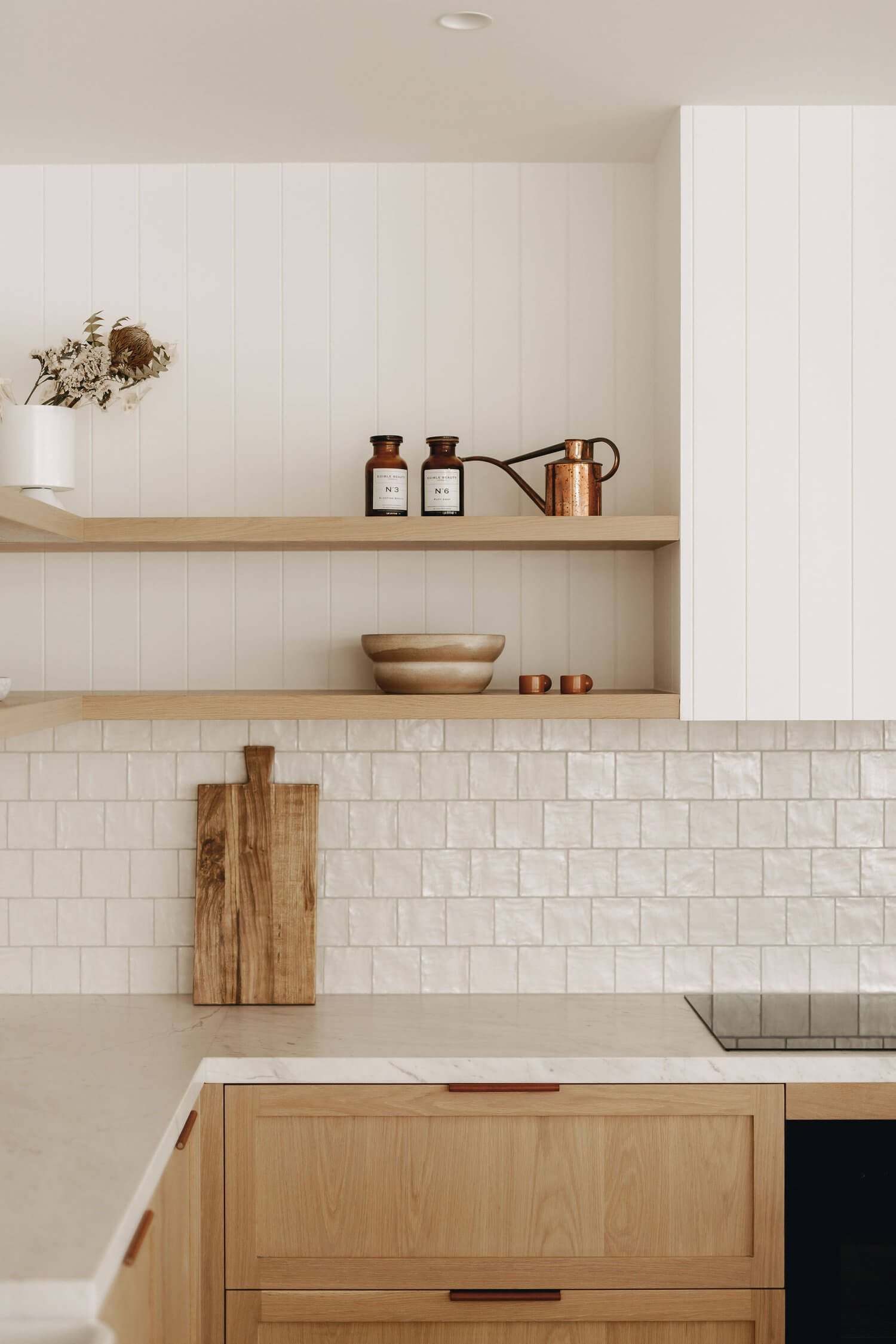What's all the fuss about Induction Cooktops?
If you’re like us, you grew up with a gas cooktop in the kitchen. The heat was predictable and familiar, and it did the job. So with the popularity of Induction cooking on the rise, you may be wondering exactly what induction is, how it works and if it’s worth changing over from trusty gas.
Let’s take a look…
Zephyr and Stone • Scandi Kitchen
It’s energy efficient
An Induction cooktop is basically like an electromagnet you can cook with. While gas and electric cooktops heat food using an open flame or heat on the bottom of your pot, induction produces heat in the pan, not the cooktop. This means you don't lose heat to the air around the pan as you do with gas or electric cooking, which makes induction cooking more energy efficient.
It’s fast
Induction is fast - it gets heat to the food 25 - 50% faster than other methods, meaning your spag bol will be cooked in no time.
It makes cleaning a breeze
Induction cookers are often built into ceramic or glass cooktops, so are easy to keep clean with just a quick wipe. Food spilled on the surface doesn’t burn, as it doesn’t heat up. Only food touching the pot has the potential to burn and can be scraped away with a shallow blade or simply wiped away. So your cooktop and kitchen cleaning time will be cut down significantly compared to traditional options.
Three Birds Renovations • White Modern Kitchen
GIA Renovations • Grey Natural Stone Kitchen
It’s safe
The surface of an induction cooktop doesn't heat up - the pot does. For this reason, the surface will only get as hot as the pot. The surface is made of ceramic or glass, which are poor conductors of heat, so it cools down fast after the pot has been removed. In most cases, it’s safe to touch shortly after the pot has been removed.
It’s Instant
Much like gas, the temperature changes instantly when you change the setting on your induction cooktop. It also features multiple temperature settings, so you can adjust the temperature precisely where you need it with the push of a button.
Sound too good to be true? While Induction is all this and more, there are some drawbacks. Let’s take a peek.
Price
Expect to pay more for a typical induction cooktop compared with gas or electricity. Lower energy consumption will help even out the cost over time, however not significant enough to pay back the difference. If you pair an Induction cooktop with solar panels or other forms of home energy production, it will be more cost-effective than gas over its lifetime.
Hecker Guthrie • Minimalist White Kitchen
Rob Kennon Architects • Timber and Marble Kitchen
Cookware
Induction cooking only works effectively with cookware pans that contain Iron. This may pose an issue if your cookware doesn’t, as you’ll have to replace it. Although compatible cookware is widely available, this extra cost is something to take into account, as having to buy an entire set of pots and pans could add significantly to the outlay of switching to induction.
Noise
While the induction cooktop is in use, a minimal buzzing sound may be heard especially on the higher settings. This is caused by the magnetic field and is generally quieter than the sound of a fan-forced oven or gas. It’s actually barely audible most of the time, but something to be aware of.
It’s susceptible to damage
The cooktop surface can be scratched or damaged by pots and pans, especially if they are repeatedly slid across its surface. Aluminium foil can melt on the surface of the cooktop causing permanent damage.
Zephyr and Stone • Grey Scandi Kitchen
Georgie Shepherd • Contemporary Kitchen Design
As you can see, Induction is a fabulous alternative to gas and electric cooking. We both made the switch to induction a few years ago, and we’d never go back. It’s a safer option with young children hovering around the kitchen at meal prep time, and the fact it wipes clean so easily is the icing on the cake. So what do you think? Will you make the switch?









